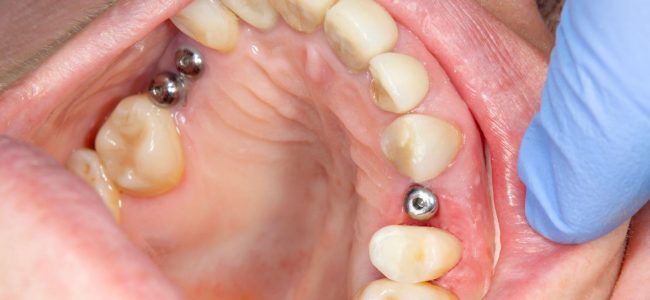Do They Put You to Sleep for Dental Implants?
If you’re missing one, a few, or several teeth, you may have looked into dental implants. Dental implants replace tooth roots with metal posts and then are connected to artificial teeth. The roots are implanted directly into the jawbone, and the artificial teeth will look and function just like real teeth. Most often, dental implants require a multi-step process, particularly since the roots need time to heal and integrate into your jawbone.
Before you take the leap into dental implants, make sure you’re willing and able to commit to the length of time that the entire process will require. Additionally, while dental implants are a long-term solution for many oral problems, they do, in fact, require surgery. Because of this, many people wonder if they can or will be put to sleep for the procedure. While you will absolutely get some form of anesthesia that will keep you from feeling any sort of pain from the procedure, the type of anesthesia that you receive can differ depending on several different factors.
Number of Implants & Personal Preference
For starters, the number of implants you’ll be receiving will make a big difference in your anesthesia and sedation options. If you’re only having one or two implants, you will likely only need local anesthesia at the site of the implants. If you’re having more than a few or even all of your teeth replaced with dental implants, you can discuss your options with your oral surgeon. If you are comfortable with only local anesthesia, that is likely the best route to go. But if you’re very apprehensive or anxious about dental surgery, you may be able to explore other options for your procedure.
Types of Anesthesia Used for Dental Implants
The two main types of anesthesia are local and general. Local anesthesia will only numb the area where the procedure is—in this case, your mouth. General anesthesia impacts your whole body. This is what is used when you are “put to sleep” and unconscious during the procedure. Typically, general anesthesia is not necessary for dental implant surgery. However, you might still wish to have that option based on your personal preferences and experiences.
If you do want to be completely put to sleep during your dental implant surgery, you will have to ask your dentist if they offer that option. If not, you can explore other offices that may give you that choice. If you prefer not to be fully put to sleep, you should be quite comfortable will local anesthetic, though there are additional sedation dentistry options that can help you feel more comfortable during the procedure.
Sedation Dentistry
If you don’t want to be put to sleep fully or if your dentist doesn’t offer it, you may still be concerned about the procedure. If you are anxious about dental work or have some apprehension about being conscious during the procedure, there are other options available through sedation dentistry. This concept of sedation dentistry refers to the use of medication to help patients relax during various dental procedures. There are a few levels of sedation dentistry that can be utilized in different circumstances. They include the following:
- Minimal sedation, where patients are wide awake but relaxed
- Moderate sedation, where patients are awake but may slur their speech and not have much memory of the procedure after the fact
- Deep sedation, where patients are barely on the edge of consciousness but can still be awakened if needed
The most common forms of sedation include inhaled sedation (most commonly known as laughing gas), oral sedation, and IV sedation, in addition to deep sedation and general anesthesia.
If you are interested in some variety of sedation dentistry for your dental implant procedure, you should have a conversation with your oral surgeon. Whether you would prefer general anesthesia, local anesthesia, or some form of sedation dentistry alongside anesthesia, your dentist can offer more insight into your options and what might work best for you.
